2022年已经过去了两周,刚许下的新年愿望还在坚持吗?本周的分享中,David Perell 回顾了自己过去的一年,Todolist 的创始人 Amir Salihefendić 分享了他管理时间的秘诀。希望这些都能帮到你。
Recap
Todoist 的创始人 Amir Salihefendić 分享了他自己的时间管理系统:
- 所有的待办事项/已办事项都记录在同一个系统里;
- 每天争取做到 todo list zero;
- 每天只看两次邮件,不开邮件提醒,所有的邮件处理都集中在那两个时间段;
- 每个待办事项都要具体而且做到可执行;所谓可执行是指一件事大致可以在一小时内完成,如果超过这个时间限制,我们需要把这一事项拆分成更小的任务。
Daily Productive Sharing 366 - 20220110
Dan Wang 是一位智库的分析师,每年他都会写一篇年度总结,其中又很大的篇幅是介绍他对中国的看法。他的网页上列出了他喜欢的书籍,其中有大量关于中国的书,所以他能分享独到而深入的见解也就不奇怪了。这些书籍的主题广泛,从古代中国到现代中国,从个人传记到纪实类类作品应有尽有。可以从非常多的角度来了解中国。
- Cumings, The Korean War
- Chang, Factory Girls: From Village to City in a Changing China
- Yip & McKern, China’s Next Strategic Advantage: From Imitation to Innovation
- Kroeber, China’s Economy: What Everyone Needs to Know
- Gewirtz, Unlikely Partners: Chinese Reformers, Western Economists, and the Making of Global China
- Brown, CEO China: The Rise of Xi
- Yuk Hui, The Question Concerning Technology in China
- Cartledge, A System Apart: Hong Kong’s Political Economy from 1997 Until Now
- Mann, Buddenbrooks
- Lewis, The Tang Dynasty
- Kuhn, The Age of Confucian Rule: The Song Transformation of China
- Brook, The Troubled Empire: China in the Yuan and Ming Dynasties
- Rowe, China’s Last Empire: The Great Qing
- Cao, Dream of the Red Chamber
- Ball, The Water Kingdom: A Secret History of China
- Brook, The Confusions of Pleasure: Commerce and Culture in Ming China
- Vogel, Deng Xiaoping and the Transformation of China
- Osnos, Age of Ambition: Chasing Fortune, Truth and Faith in the New China
- Spence, The Search for Modern China
- O’Donnell, Wong, and Bach, Learning from Shenzhen
- Yan, Leadership and the Rise of Great Powers
- Mitter, Forgotten Ally: China’s World War II
- Walder, China Under Mao
- Sanderson & Forsythe, China’s Superbank
- Brady, Marketing Dictatorship: Propaganda and Thought Work in Contemporary China
- Meyskens, Mao’s Third Front: The Militarization of Cold War China
- Yeo, Varieties of State Regulation: How China Regulates Its Socialist Market Economy
- Pieke, Knowing China: A Twenty-First Century Guide
- Zhao, Prisoner of the State
- Dong, Shanghai: The Rise and Fall of a Decadent City
- Li, Middle Class Shanghai
- von Glahn, The Economic History of China: From Antiquity to the Nineteenth Century
Daily Productive Sharing 367 - 20220111
David Perell 也带来了他的年度总结。这篇文章除了基本的回顾以外,还有不少真知灼见,非常值得一读。
- 平台的算法具有自己的倾向性,创作者要想保持自己的品味,就需要在两者之间做出选择;
- 人们通常在冬天夏天休假, 所以要开网课的话,最好避开这两个时间段;
- 愿意阅读长文的读者,通常是最忠实的读者,甚至可能变成现实生活中的朋友;
- 深度阅读的一大要领就是切断网络;
- 每周发布电子报会强迫我们保持写作的节奏。
Daily Productive Sharing 368 - 20220112
Josh Braegger 列举了五种导致 burnout 的情形,同时给出了各自的应对方案:
- 只考虑项目
- 对任何事情都持有消极的态度。
- 只使用你所熟悉的工具,因为你这样做会更快。
- 经常换工作
- 长时间工作,忽略自己的生活
Daily Productive Sharing 369 - 20220113
Dan Wang 是一位生活在上海的智库分析师,最近五年的年末他都会写一封长篇总结,2021年的年度总结里,他花了很大篇幅来讨论中国,有很多独到而深入的观察。
比如关于北京的观察:
- Everything that can go wrong in urban design has gone wrong in Beijing.
- Beijing’s goal is to channel entrepreneurial spirit towards useful goals. Profit cannot be the final standard of value, and the country’s best and brightest must work towards national salvation.
- The currency of Beijing is power.
关于香港的观察:
- But Hong Kong was also the most bureaucratic city I’ve ever lived in. Its business landscape has remained static for decades: the preserve of property developers that has created no noteworthy companies in the last three decades.
关于中国作为一个整体:
- There’s a little joke that the ideal company is led by a Beijinger, who would provide the vision, leadership, and government-relations savvy; its finances would be led by someone from Shanghai, and its operations managed by someone from Shenzhen (who would hire people from Sichuan and Anhui to do the actual work).
- A distinctive feature of Chinese governance is to continuously fix slogans, like “reform and opening” to move the country away from socialism, and the more recent “common prosperity” to move it back.
- I expect that China will grow rich but remain culturally stunted. By my count, the country has produced two cultural works over the last four decades since reform and opening that have proved attractive to the rest of the world: the Three-Body Problem and TikTok.
- Instead, the country is more likely to be seen as a land of censorious commies. In the developed world, China’s unfavorability ratings have reached an average of 60%, according to Pew Research.
- As Chinese businesses and the state are growing more capable, the leadership is becoming more brutal towards many of its own citizens as well as foreign critics. China is, in other words, a place that both moves fast and breaks things _and_moves fast and breaks people.
- The good and/or bad thing about China is that everything changes every 18 months. So it’s all the more important to observe reality on the ground.
- China has been mostly shut in 2021, a hundred years after the party’s founding. I think that the government has no real exit plan for this pandemic. Any time it looks like it might relax, another variant shows up. The leadership probably has no firm aspiration to open the border at any date, and instead will assess the situation of variants and medical treatments every so often. If things don’t look good, then it won’t open up.
- I guess I’m more on the side that omicron can’t be contained. The government won’t go down without a fight, I’m sure, which means that it will implement lockdowns far more severe than anything it has done to this point.
关于中美比较:
- The Chinese state has long placed greater value on resilience over efficiency, which has dragged down its performance on metrics that economists care about, like return on equity.
- The US is ahead of China on the sort of mathematical economics that win Nobel Prizes. But China is ahead of the US on the actual practice of political economy.
- The rule of thumb for US businesses is that China makes up half of global demand for most products, from wind turbines to structural steel; and China will account for a third to a half of expected growth over the next decade.
Daily Productive Sharing 370 - 20220114
本周的生产力日报集合就到此为止,如果你有什么建议,也欢迎留言告诉我们。如果想要收到最及时的推荐,不妨订阅我们的频道,或者付费解锁更多增值内容,我们下期见。
DPS 周刊 17 - 如果 Github 撤出中国会怎样?
DPS 周刊 04 -如何防止 Bookthing 那样不要脸地洗稿?
DPS 周刊 03 - 如何像 Sam Altman 一样成功?
DPS 周刊 02 - 如何像 Marc Andreessen 一样思考?
题图源自 Unsplash

